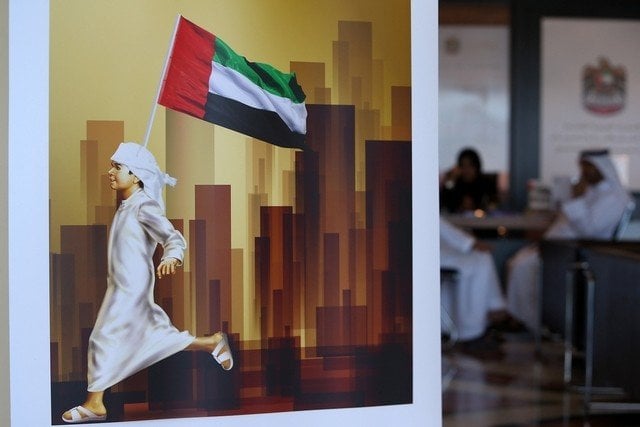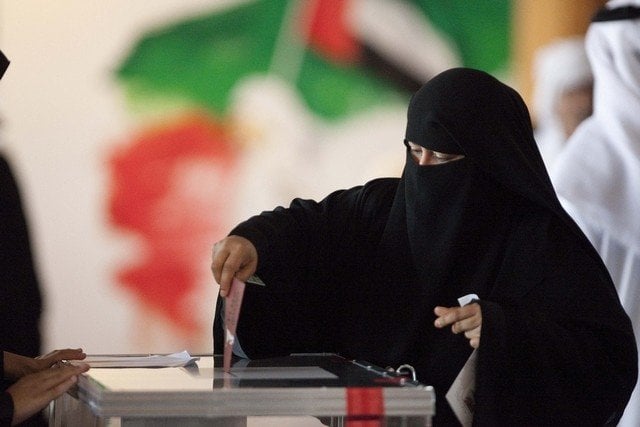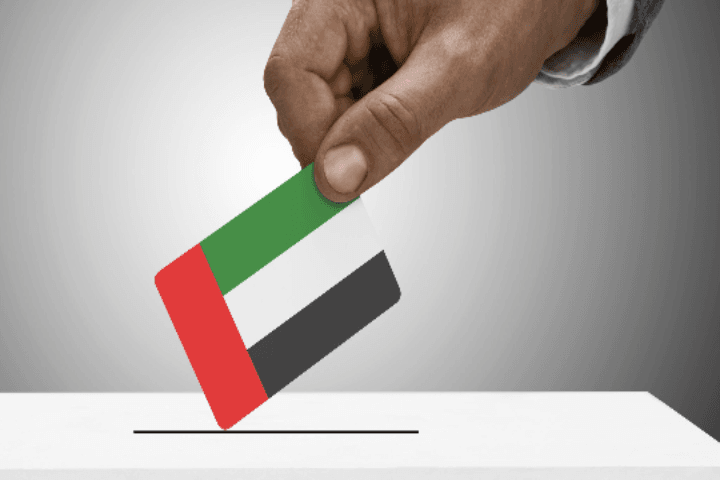Mehmood Ul Hassan Khan
United Arab Emirates (UAE) is slowly but surely on the path of further democratization. Most recently, UAE held its 3rd Federal National Council (FNC) Elections in the country. Process of politicization has now been further strengthened. It is its giant strides towards universal suffrage. The UAE has rightly adopted a gradual political approach to develop parliamentary experience, matching the unique cultural experience of the UAE community in all areas.
The FNC has been a great forum for public-to-government interaction. The UAE’s decision to bring the general people in government decision-making has helped the nation take great strides in policy-making. Therefore with the expanding the pool of eligible voters, we will make further strides in democracy,”
The names of the preliminary winners in the Federal National Council Elections 2015 have been announced. FNC Election was conducted in three stages throughout the country.
The voter age is 18. It experienced for the first time, a single-vote system, a judge to lead the panel that would hear appeals, overseas ballots, and a wider awareness campaign to improve turnout. It witnessed, for the first time, greater political participation, and achievable universal suffrage.
According to Dr. Anwar Mohammed Gargash, Minister of State for Foreign Affairs, Minister of State for Federal National Council Affairs (FNC) and Chairman of the National Election Committee (NEC), voting was also held at UAE embassies and diplomatic missions abroad. Early voting in the country enabled eligible UAE citizens to elect half of the 40 member Federal National Council (FNC).
During the press conference, Dr. Anwar Gargash said the nation has achieved another milestone that has instilled in Emiratis the spirit of patriotism and loyalty to the leadership. He added that the UAE’s third electoral experience has become a key contributor to the nation’s development march.
Dr. Gargash expressed his appreciation to UAE President His Highness Sheikh Khalifa bin Zayed Al Nahyan for setting the pillars of the national empowerment programme, which concluded its third stage today through the FNC Elections 2015.
He also thanked Vice President and Prime Minister of the UAE and Ruler of Dubai, His Highness Sheikh Mohammed bin Rashid Al Maktoum, along with all the Members of Supreme, Their Highnesses Rulers of the Emirates for their immense support to this pioneering national initiative through their continuous supervision of the electoral process.
Dr. Gargash also extended his gratitude to His Highness Sheikh Mohammed bin Zayed Al Nahyan, Crown Prince of Abu Dhabi and Deputy Supreme Commander of the UAE Armed Forces, for his support to the electoral programme.
According to the official figures, the recently held elections witnessed an increase in voter turnout to 35.29 per cent with participation of 79,157 voters. The Electoral College also developed to 224,279 voters, with women representing 48 per cent of total voters. The number of polling stations increased to 36, which were equipped with all the facilities to enable the voters to exercise their electoral right smoothly. The increased number of voters is a step towards ensuring the FNC experience is more representative and closer to the issues and concerns of citizens.
The parliamentary process started as early as 2006, when the first electoral pool of about 7,000 Emiratis was selected to vote. In the second round of FNC elections, about 130,000 Emiratis were granted voting rights, an increase of about 18-fold in 2011.
The breakdown of eligible voters by emirate is: 90,408 from Abu Dhabi; 53,568 from Dubai; 31,766 from Sharjah; 27,455 from Ras Al Khaimah; 10,887 from Fujairah; 6,090 from Ajman; and 4,105 from Umm Al Quwain.
Furthermore, a total of 330 candidates, including 74 women, from across the seven emirates contested the elections. A unique feature of the elections this year was the introduction of early voting for three days during which 37,663 voters cast their votes. Voting was also held from outside the UAE in 94 polling centres in the UAE embassies and diplomatic missions in most countries around the world, participated by 1,378 voters.
Fujairah leads the way with younger voters, with 85 per cent of those eligible under the age of 40. Sharjah, Ajman and RAK follow with 70 per cent, while in UAQ, 69 per cent of voters are in that demographic. Abu Dhabi and Dubai have 67 and 59 per cent of their voters under 40.
Moreover, the percentage of female voters increased from 46 per cent in 2011, but more than doubled from 2006 to 2011. Women outnumber men in Abu Dhabi and Dubai, at 53 and 51 per cent respectively.
The electoral process has led to the election of 20 candidates, representing half the members of the Federal National Council. The total number of voters included 48,330 men and 30,827 women.
The votes cast in each emirate are: Abu Dhabi 35,046 votes, Dubai 11,760, Sharjah 9,585, Ajman 2,965, Umm al -Qaiwain 2,882, Ras Al Khaimah 11,444, and Fujairah 5,475 votes.
The final results will be declared on October 11, 2015, only after the completion of the period of appeals on the results which starts on Sunday (October 4), according to the timetable for the Federal National Council Elections 2015.
FNC Elections has ensured the selection of active members who are able to research societal issues thoroughly and transparently, and find effective and appropriate solutions. Each election brings a greater number of voters, confirming the keenness of the Rulers to enable citizens to play an active part in political development. This is in line with the empowerement programme launched by the President, Sheikh Khalifa.
Voters elected Federal National Council members based on their qualifications and not tribal connections. It is the true reflection of positive patriotism. Active community representation is must for further democratization. It enhances good governance. It fosters transparency. It promotes accountability. It promotes Emirati identity and trains nationals to deal with emergencies.
It abridges gap between the Rulers and People. Rulers need to know what people at every level of the community think and want and feel. It is important for those in high office to be aware of what ordinary citizens are discussing in the majlis.
As part of efforts to ensure the highest standards of efficiency, accuracy and transparency in the Federal National Council Elections 2015, the National Election Committee (NEC) announced a timetable for the election process during its 11th meeting held in Abu Dhabi.
The NEC announced opening of nominations to the elections on August 13, followed by registration of the candidates, which lasted for five days starting August 16. The preliminary list of candidates was announced on August 23. Three days August 24 to 26 were set aside for submission of objections on candidate nominations. NEC responded to the objections on August 27.
The final list of candidates was announced on August 31, following which the election campaign was carried out for 25 days from September 6 to 30. The last date for withdrawal of candidates was September 14, which was also the deadline for candidates to submit the names of their agents.
There was no discrimination against any candidate in the elections 2011. The FNC elections 2011 offered a chance for all nationals of different age and gender to engage with the diverse processes of democracy and play important role in the decision making process. The voters were free to cast their votes.
The FNC elections 2015 offered a chance for all nationals of different ages and genders to engage with the diverse process of democracy and play important role in the decision making.


